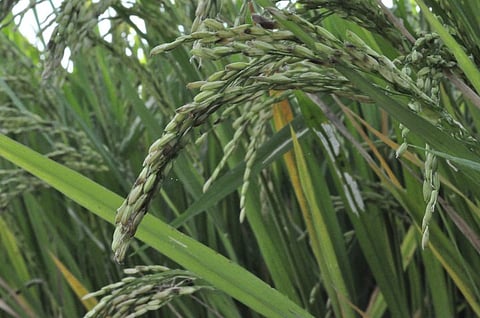Kerala Agriculture University to pitch cases of a gram, bean for GI tag
PALAKKAD: Studies have begun at the Intellectual Property Rights (IPR) Cell at the Kerala Agriculture University (KAU), Mannuthy, to present the case of Attukombu Amara (Lablab Bean) and Attappadi Thuvara (red gram/pigeon pea) for the Geographical Indication tag.“Since there aren’t much area of millet cultivation in Kerala, we propose to compare the origin and specialities of the Attukombu Amara and Attappadi Thuvara with similar varieties in the neighbouring states. There is no need to go into molecular techniques like gene mapping as the specific features of the crop produce attached to the region’s topography will suffice,” said KAU IPR cell professor and co-ordinator C R Elsy.
The expert committee constituted for the long procedure requiring legal application will seek a host of clarifications, according to Elsy. She pointed out the last GI tag secured by the KAU was for the Nilambur teak in December, 2017. Currently, the application for Marayur jaggery’s GI status is before the expert committee.
“It was when 31 tribal infants died in Attappadi in 2013, compared to the state average of 12 infants, that the government woke up to the reality. It was found the tribals no longer cultivated their traditional crops like millets, cereals and pulses which are rich in minerals like copper, manganese, iron and magnesium,” said Attappadi tribal health nodal officer R Prabhudas.“The Agriculture Department has cultivated millets in 225 hectares, pulses in 150 hectares, vegetables in 50 hectares and oilseeds (groundnut) in 60 hectares, totalling 485 hectares in 40 hamlets benefiting 1,605 tribals. This is the second year of cultivation and the funding is done by the Scheduled Tribe Development Department. This year we plan to procure 25 tonnes of millets, compared to last year when it was only 3 tonnes, mainly due to drought,” said millet village special officer B Suresh.
“We’ve signed an MoU with the Indian Institute of Millet Research, Hyderabad for providing training to farmers and also value addition. We plan to form farmer producers organisations which will be registered under the Companies Act. Moreover, the cultivation, which will be organic, is being done scientifically so that it could be certified by APEDA, New Delhi. Indocert , Aluva has been entrusted with the task of monitoring the process and it’ll take three years to achieve the certification,” added Suresh, who is also the Deputy Director of Agriculture.

